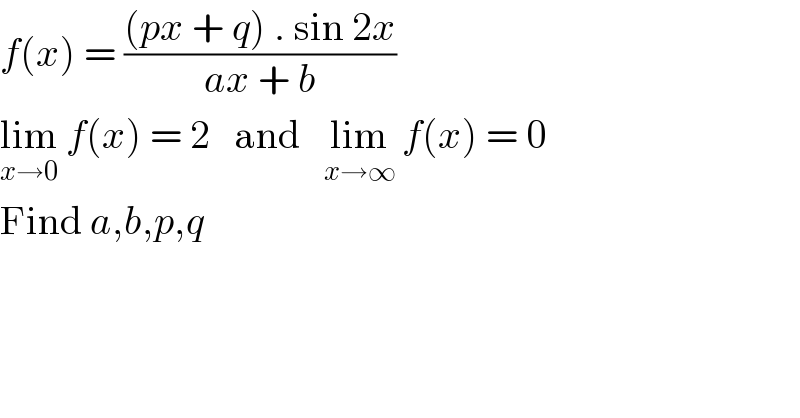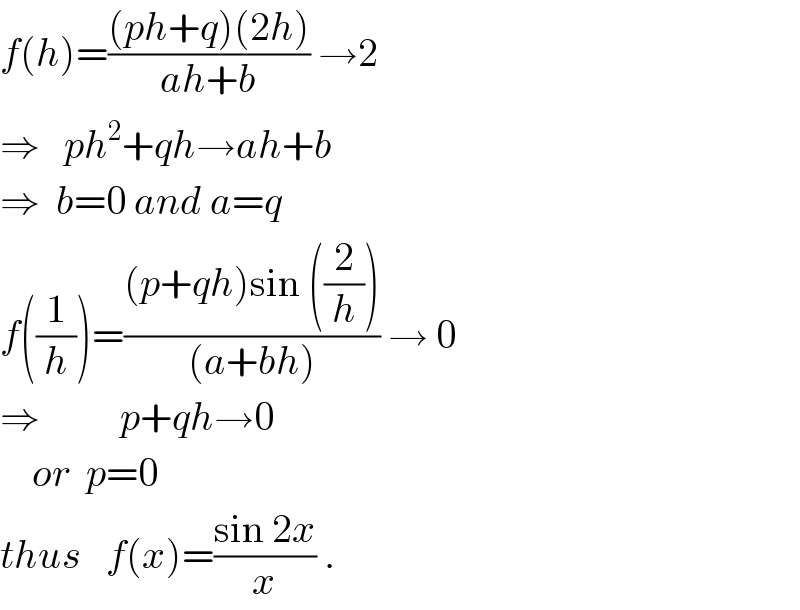
Question and Answers Forum
Question Number 15181 by Joel577 last updated on 08/Jun/17

Answered by ajfour last updated on 08/Jun/17

| ||
Question and Answers Forum | ||
Question Number 15181 by Joel577 last updated on 08/Jun/17 | ||
 | ||
Answered by ajfour last updated on 08/Jun/17 | ||
 | ||
| ||